Today, people are getting tired of being stressed hundreds of times a day. So where is the easiest to find stress reliever? Food can play a big role in stress relief. It affects blood glucose control as well as emotional regulation. There are eight kinds of foods that can be helpful when you are stressed.
1. Green Leafy Vegetables
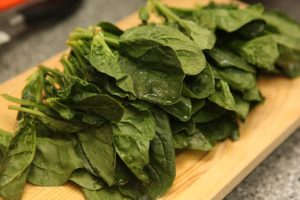
Nowadays, a lot of people look for some spicy food like Ramen, Tteokbokki or chicken feet when they get stressed. However, for their health, green food is the answer. Heather Mangieri, a spokesperson for the Academy of Nutrition and Dietetics, says, “Green leafy vegetables such as spinach contain folate that helps make dopamine.” Dopamine is a substance that helps mood enhancement and stability.
According to the 2012 study in the Journal of Affective Disorders of 2,800 middle-aged and elderly people, people who consumed the most folate had a lower risk of depression symptoms than those who took in the least. And, a 2013 study from the University of Otago found that college students tended to feel calmer, happier and more energetic on days they ate more fruits and veggies.
2. Yogurt
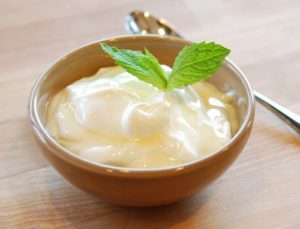
It may sound weird, but the bacteria in yogurt might be contributing to stress. According to a 2013 UCLA study of 26 healthy women, people who ingested yogurt probiotics had less stressed-related brain activities than those who did not intake them. In addition, it is necessary for people to know that yogurt contains actives, proteins, and calcium.
3. Salmon
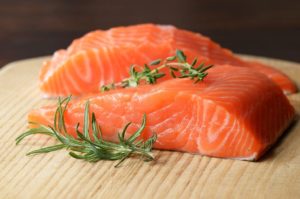
When you are stressed, the figure of anxiety hormones such as adrenaline and cortisol are increased together. Lisa Cimperman, the University Hospitals Case Medical Center RD, says, “Omega-3 fatty acids in salmon can prevent the negative effects of the anxiety hormones.” Approximately 85 grams of wild salmon can have about two grams of omega-3 which is double the daily intake recommended by the American Heart Association for people with heart disease.
4. Blueberry
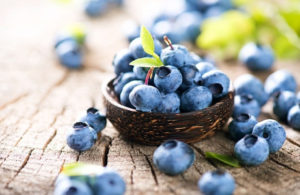
“When you are stressed, there is a battle inside your body,” Mangieri says. The antioxidants and phytonutrients found in blueberries fight in your defense, helping improve your body’s response to stress and fight stress-related free radicals.
Research has also shown that eating blueberries can help body produce natural killer cells, a type of white blood cell that plays a vital role in immunity, critical for countering stress.
5. Pistachio
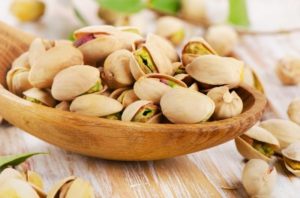
Pistachios are good for your heart health. “Eating pistachios may reduce acute stress by lowering blood pressure and heart rate,” Mangieri says. “The nuts contain key phytonutrients that may provide antioxidant support for cardiovascular health.”
Moreover, when negative thoughts do not leave your head, you might try to push them out by repeating simple actions. Eating peanuts and pistachios will help it.
6. Dark Chocolate

“Research has shown that dark chocolate can reduce your stress hormones, including cortisol,” Sass says. Also, the antioxidants in cocoa trigger the walls of your blood vessels to relax, lowering blood pressure and improving circulation. And finally, dark chocolate contains unique natural substances that create a sense of euphoria similar to the feeling of being in love. Go for varieties that contain at least 70%.
7. Milk
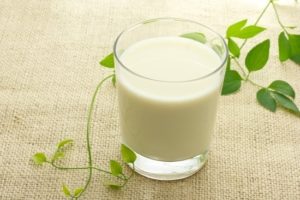
Milk is full of vitamin D which can improve the quality of life in terms of mental health. A 50-year-long study by London’s UCL Institute of Child Health found an association between reduced levels of vitamin D and an increased risk of panic and depression among 5,966 men and women. People who had sufficient vitamin D levels had a reduced risk of panic disorders compared to subjects with the lowest levels of vitamin D. Salmon, eggs and fortified cereals are also vitamin D-containing foods.
8. Seeds
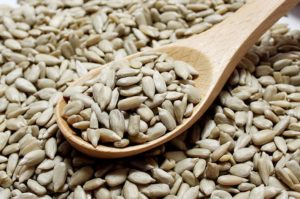
Flax seed, pumpkin seeds and sunflower seeds are all great sources of magnesium which is effective in controlling emotions. “Magnesium has been shown to help alleviate depression, fatigue and irritability,” Sass says. When you are feeling especially irritable during that time of the month, the mineral also helps to fight PMS symptoms, including cramps and water retention.
If you eat the above eight kinds of foods in small quantities every day in an appropriate amount, your body will be absolutely different. Taking them with the food you usually eat, or consuming them as snacks, which can be always at your hand is a way to easily practice eating these eight foods in daily life.

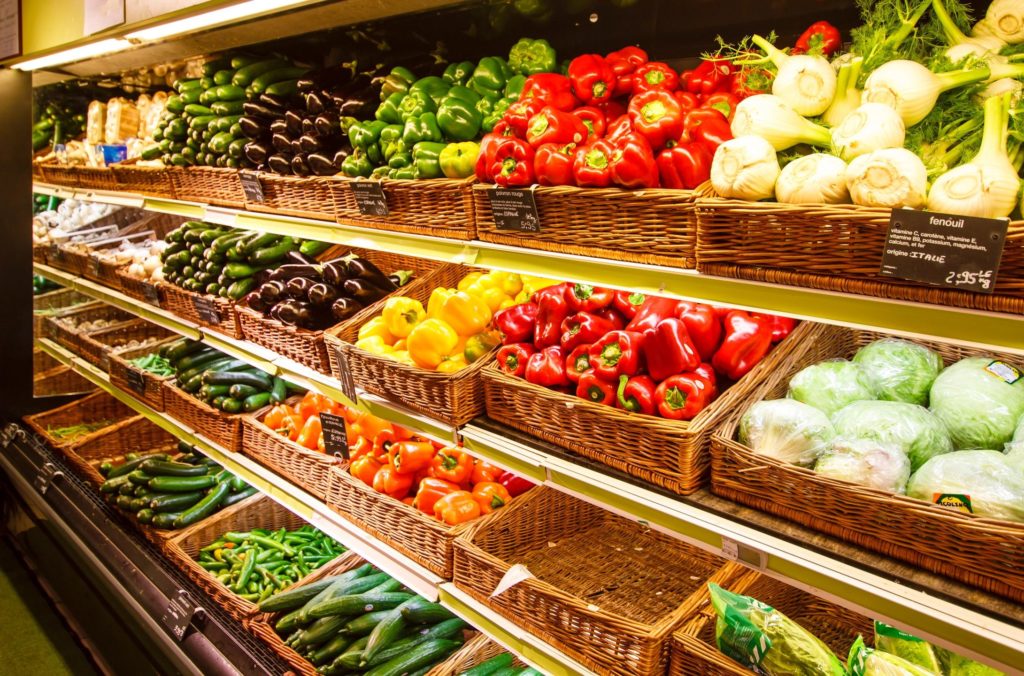



![The convenience store chain, GS25, collaborated with the beer company Heineken. This is a pop-up store operated at GS25's Hapjeong Premium Store in Seoul and Ingu Beach Store in Yangyang, Gangwon-do in collaboration with Heineken. [Image courtesy of GS25]](https://songdochronicle.com/wp-content/uploads/2022/10/Korean-convenience-stores-targeting-the-MZ-generations-Chaeyoon-Jung-1.jpg)
